While any degree in health informatics can be helpful, the best online Master’s in Health Informatics degrees are particularly valuable. They often lead to a higher salary and can pave the way to administrative positions or academic pursuits after graduation.
The health informatics sphere is growing at an unprecedented rate due to lengthening lifespans and emerging technology. The world needs more healthcare professionals who are also capable of understanding data.
What are the Best Online Master’s in Health Informatics?
We know that you have educational goals that you’re itching to pursue, but you may not know where to start. The editors of CollegeRank utilize a unique ranking methodology based on the following three aspects:
40% Potential Salary After Graduation: Average mid-career salary of school alumni
30% Institutional Accreditation: Regional and National Accreditation for the 2019-2020 school year
30% Overall Degree Affordability: Average cost of undergraduate and graduate tuition per school
At CollegeRank, we strive to do our best to guide you and your family toward a fruitful academic career. The pursuit of knowledge is a noble one, and we want to help you reach your goals. For questions, comments, badge downloads, or data corrections, please feel free to reach out to us at editor@www.collegerank.net.
University of Washington-Seattle Campus

The University of Washington is classified by the Carnegie Foundation as an R1 Research University, meaning that it operates at the highest level of academic research. The university’s main campus, located in Seattle, houses more than 140 different departments. The student population is over 46,000, and classes at the university operate on the quarter system.
The University of Washington offers a Master of Health Informatics & Health Information Management degree program. The 18-month program uses an executive format, whereby students attend courses on campus one weekend per month while completing the remainder of their coursework online. On-campus course meetings are held on UW’s Bellevue campus.
The MHIHIM curriculum is rigorous and competency-based, structured around five key pillars: Health Information Systems, Health Care Data Analytics, Information Governance, Patient and Organizational Information Privacy and Security, and Health Systems Leadership. Students also engage with industry leaders through guest lectures and panels.
Courses in the program include Law, Policy & Ethics in Health Information, Health Data Analytics, and Enterprise Systems & Electronic Health Records. The program ends with a capstone project that allows students to apply their technical and management skills to real-world industry problem-solving. A sample capstone project is a Physician Practice Online Staff Training Program.
University of South Florida-Main Campus

The University of South Florida is one of the three preeminent public universities in the state, along with Florida State and the University of Florida. The school recently consolidated its three campuses – in Tampa, St. Petersburg, and Sarasota – into one university. The school’s marching band is known as the Herd of Thunder.
USF offers a 100% online Master of Science degree program in Health Informatics. The program requires 11 courses (32 credit hours) for completion. The program’s innovative curriculum emphasizes improving health care through interprofessional education, research, and clinical activities.
The program is hosted by USF’s Morsani College of Medicine, which U.S. World News & Report has ranked as one of 2020’s Best Medical Schools.
Applicants to the program are expected to have both a cumulative undergraduate GPA of 3.0 and a 3.0 GPA in all courses in the sciences. Applicants should hold a bachelor’s degree in a field such as biology, chemistry, or computer/management information sciences. Admission to the program requires students to submit two letters of recommendation, along with a personal statement and resume.
Louisiana Tech University

Louisiana Tech University, often referred to colloquially as “La. Tech,” is a public university located in Ruston, LA. The school opened in 1894 as the Industrial Institute and College of Louisiana. It became a research university and assumed its current name in 1970. It now has more than 12,000 students in its five schools and colleges.
Louisiana Tech’s College of Applied & Natural Sciences is home to a graduate program in health informatics. Students can earn a Master of Health Informatics (MHI) degree with 45 credit hours of coursework. Courses from the program include Health Care Information Network Systems, Evaluation of Information Systems, and Leadership in Health Care.
The program is designed for students from a wide variety of academic and professional backgrounds. GRE scores are not required, but admission to the program is competitive. Applicants are expected to have two years of work experience in industries that can directly translate to health informatics, such as health care, IT, or consulting.
University of Illinois at Chicago
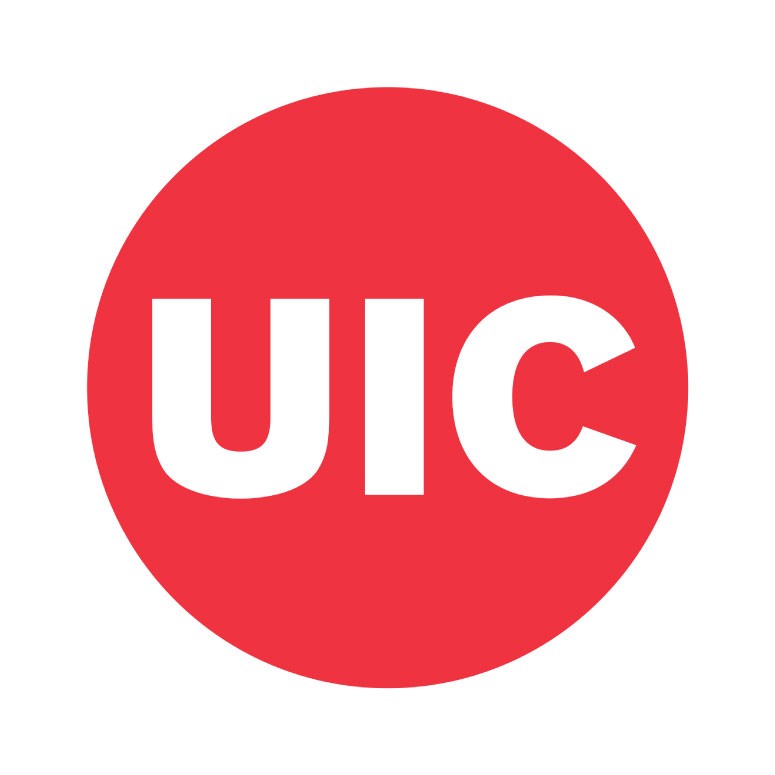
The University of Illinois at Chicago’s athletic teams are known as the Flames and are represented by the school mascot, Sparky D. Dragon. UIC’s main campus is adjacent to the Chicago Loop and was the second campus established under the University of Illinois school system.
UIC is home to a Master in Health Informatics degree program. The program is delivered in a 100% online format and can be completed in as few as 1.5 years. Students complete nine courses for a total of 24 credit hours of coursework. Courses cover functional knowledge in data optimization and application.
The 24-credit hour requirement includes five credit hours of prerequisite coursework in foundations and medical terminology of health information management. Required core courses include Health Care Data, Information Sources in Biomedical and Health Information Sciences, and Social and Organizational Issues in Health Informatics.
Students can choose to earn a concentration in Health Data Science. There are also certificate programs available in subject areas such as Health Informatics Fundamentals, Leadership in Health Informatics, and Mobile Health Informatics. A post-master’s certificate in health informatics is also available.
Michigan Technological University

In the town of Houghton, MI, students can attend Michigan Technological University, which was Michigan’s first institute of higher learning on its Upper Peninsula. Michigan Tech was founded in 1885 as a mining school for local copper miners, but the school now offers more than 130 degree programs.
MTU’s Master of Science in Health Informatics is available fully online. The program includes the option to choose one of 11 areas of focus, including Mobile Applications in Health, Health Care Cybersecurity, and Imaging Informatics. The program calls for 30 credit hours of coursework.
Applicants are required to hold an Accreditation Board for Engineering and Technology-accredited bachelor’s degree but do not have to submit GRE scores for admission. Two letters of recommendation, along with a personal statement and relevant transcripts, are also required.
Arizona State University

Arizona State University is one of the largest public universities in the United States, with more than 80,000 students across its five campuses. The main campus in Tempe, AZ, includes the Grady Gammage Memorial Auditorium, which was designed by Frank Llyod Wright. It also has a Palm Walk, which features 111 palm trees.
ASU offers an online Master of Advanced Study in Health Informatics. This online program is offered through the Department of Biomedical Informatics and combines information technology, computer science, and knowledge management. Students take ten classes (30 credit hours), and each class lasts 7.5 weeks.
Featured courses in the program include Population Health Management Analysis, Fundamentals of Health Informatics, and Workflow Analysis & Redesign in Health Systems Engineering. Program faculty members are engaged with practice and research in health monitoring technology, big data analysis, and leadership within the Mayo Clinic.
Applicants to the program are required to have a minimum undergraduate GPA of 3.0 in either their final 60 hours of undergraduate coursework or in an applicable master’s degree program. Applicants must also have earned a bachelor’s or master’s degree in a related field, such as biology, computer science, medicine, nursing, pharmacy, or public health.
University of Massachusetts – Lowell
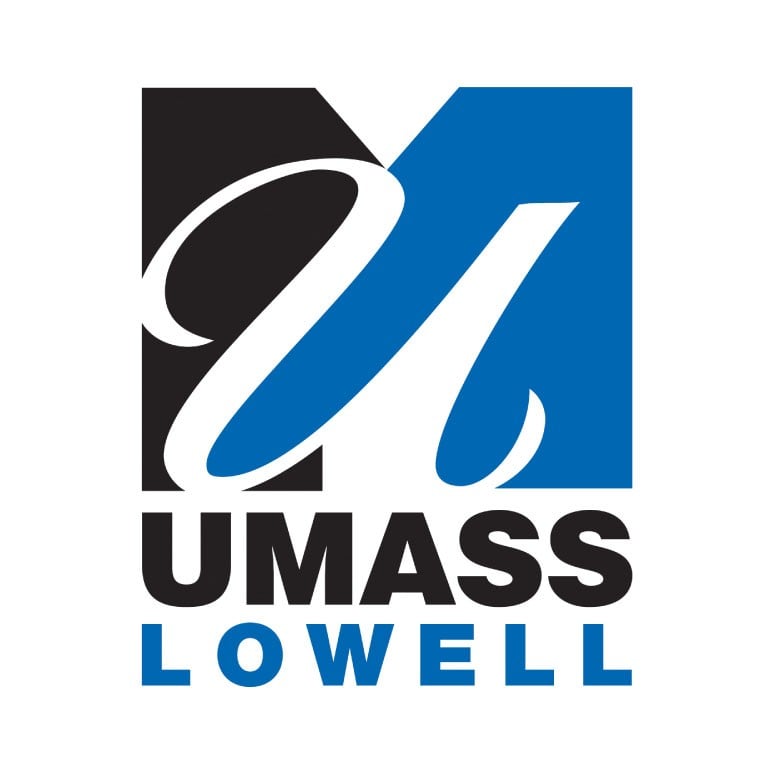
The University of Massachusetts-Lowell has more than 1,150 faculty members and 18,000 students. Lowell grew out of two institutions, Lowell State College and Lowell Technological Institute. The schools merged in 1972 and the school eventually joined the Massachusetts public school system in 1991.
Lowell’s Master of Science in Health Informatics and Management program is available entirely online and can include an Informatics concentration. Students complete 36 credit hours of courses, which are split between 27 hours of core courses and nine hours of electives. Applicants need to submit GRE scores if their undergraduate GPA is below 3.2.
The nine required core courses include Law and Ethics in Health Care, Operations Analysis for Quality Improvement, and Health Care Finance. Students then choose three electives from a list that includes Health Care Project Management, Electronic Health Record Systems, and Applied Health Economics. The program ends with a capstone project, which concludes with the submission of a business-type report.
University of Cincinnati – Main Campus
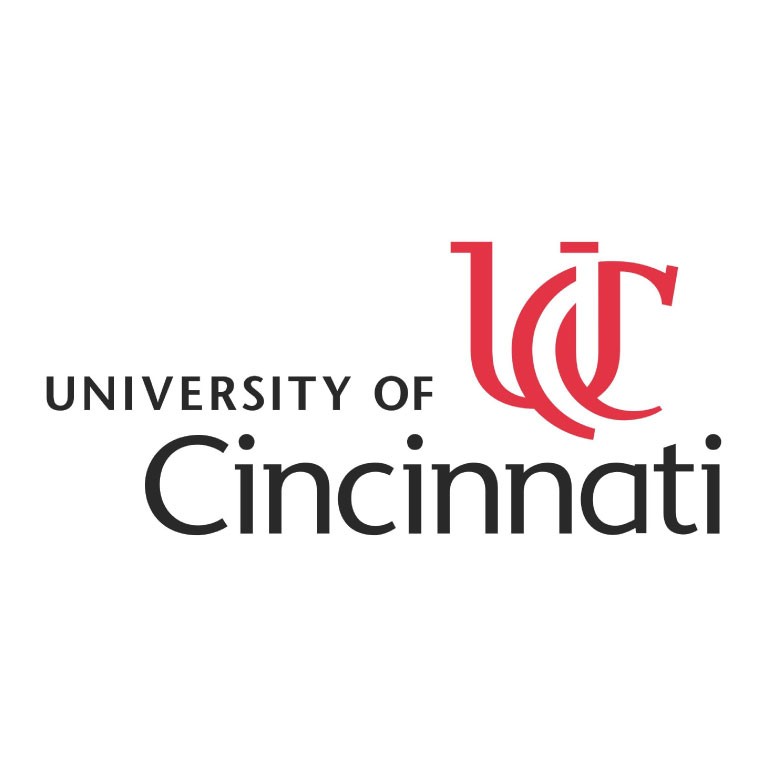
The University of Cincinnati is the oldest institution of higher learning in the city of Cincinnati. The school’s athletic teams, known as the Bearcats, have a number of famous alumni, including Sandy Koufax and Oscar Roberston. The school’s dance team has won four national championships and is often ranked as one of the best in the country.
UIC is home to an online Master of Health Informatics program that requires students to complete 33 credit hours of coursework.
The program is delivered 100% online, with no campus visits required. Applicants with a GPA of at least 3.0 do not have to submit GRE or GMAT scores for admission. There are also no prerequisite requirements in health care or IT.
Both full- and part-time students can complete the degree requirements in as few as 24 months. The curriculum includes ten core courses and one practicum course. Core courses include The Health Care and Public Health Landscape, Introduction to Health Care Data Science, and Project and Program Management.
Northwestern University

Northwestern University’s main campus is in Evanston, IL, but the school also has locations in Chicago and Doah, Qatar. The Education City campus in Doha is home to programs in journalism and communication. Northwestern’s main School of Communication has produced a number of both Emmy and Tony Award-winning writers and producers.
Northwestern’s Master of Science in Health Informatics degree is available fully online for working professionals. Classes are taught by faculty members with advanced academic and practical knowledge in the field; among them are Jay Anderson, who teaches Health Care Organization Operations and manages the day-to-day operations of Northwestern Memorial Hospital.
Students in the MHI program choose from one of three areas of specialization: Clinical Informatics, Health Technology Informatics, or Health Administration Informatics. Online courses use interactive classroom formats, which make classes dynamic and easy to fit into students’ busy work schedules. The program can be completed in two to three years of uninterrupted, part-time study.
Students who complete courses in the certificate program cannot transfer them into the master’s program. Students have up to five years to meet all requirements for graduation. Core courses required in the program include American Health Care System, Legal, Ethical, & Social Issues, and Health Analytics Leadership.
University of Central Florida
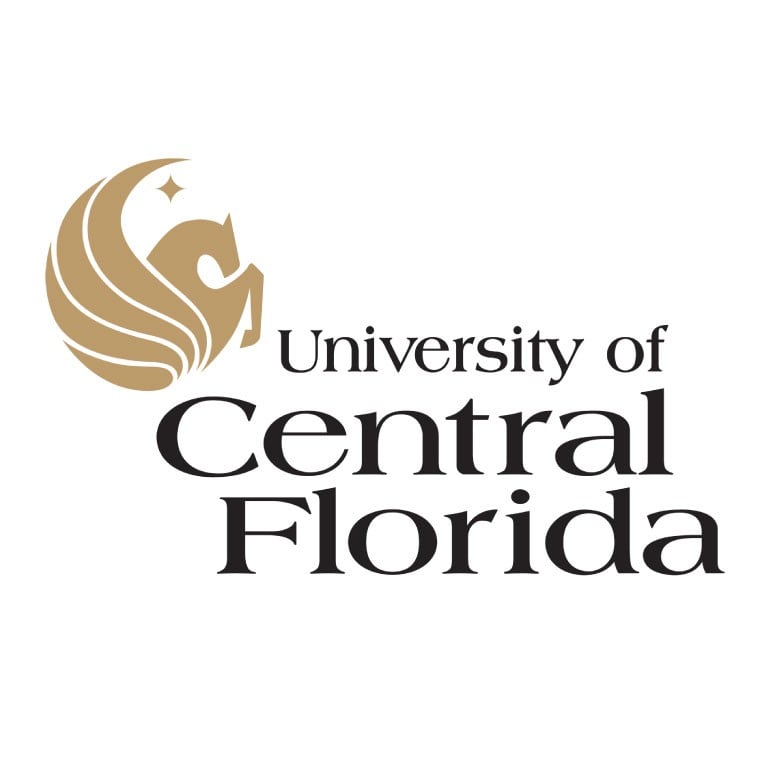
The University of Central Florida is the largest university in the United States by enrollment. Its Orlando campus is home to more than 66,000 students. These students attend 13 schools and colleges, which offer more than 200 degree programs. UCF’s crest includes a pegasus, which represents the limitless possibilities available at the school.
UCF offers an online master’s in healthcare informatics through its College of Community Innovation and Education. There are 38 credit hours of coursework in the program, with courses delivered in 12-week terms. Graduates of the program have a 93% job placement rate. Students can apply to begin the program in either the fall or spring semester.
Popular courses in the curriculum include Health Care Informatics and Information Technology, Systems Analysis and Design, and Health Care Database Management. Students can complete the program in as few as two years. Students work with faculty members to arrange internships and establish future career tracks.
University of Missouri
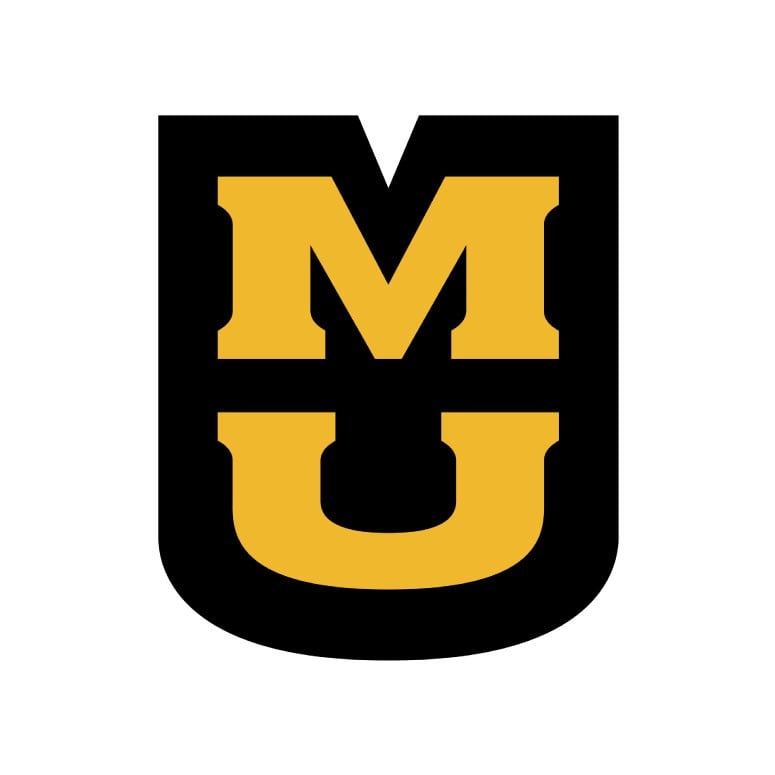
The University of Missouri is home to the world’s first School of Journalism, which was founded by Walter Williams in 1908. Located in Columbia, MO, the school’s main campus is also home to the University of Missouri Research Reactor Center, which produces isotopes for use in nuclear medicine across the United States.
The University of Missouri offers a Master of Science in Health Informatics program, which is delivered through a blended format of campus visits and online coursework. Students complete three weekend-long campus visits in the fall and spring semesters, along with one campus visit during the summer semester.
Students must complete 33 credit hours of coursework, which are divided between 27 hours of core coursework and six hours of research (for an individual research project). There are two prerequisite courses for the program: college-level statistics and algebra. Students proceed through the program in lockstep with the other members of their cohort.
Students begin the program in January, starting with the course Introduction to Health Informatics and Introduction to the U.S. Health Care System. Then, move on to health data analytics, biomedical and health vocabulary and ontologies, and individual executive management studies. Students must pass a culminating oral examination during their final semester.
George Mason University

George Mason University is a public university located in Fairfax, VA. George Mason was founded in 1956 as a part of the University of Virginia system but became an independent university in 1972. It is classified by the Carnegie Foundation as an R1: Very High Research Activity university.
George Mason offers an online Master of Science program in Health Informatics. The program is delivered 100% online through 39 credit hours offered by GMU’s College of Health and Human Services. The curriculum is designed to be flexible for working professionals, delivering coursework at the intersection of health care, technology, and data science.
Students with sufficient educational background or work experience can waive the first two introductory courses. Students who are new to health informatics can take GSU’s MHSI Bridge course, which is meant to transition students who lack sufficient background in math, computing, and informatics.
Courses in the program include Advanced Statistics in Health Services Research, Health Data Integration, Data Mining in Health Care, and Statistical Process Control. Students finish the program with a capstone practicum, during which they complete a non-thesis project. The program accepts applications on a rolling basis.
Brandeis University

Brandeis University is named after the first Jewish Justice of the United States Supreme Court, Louis Brandeis. It was founded in 1948 as a non-sectarian university sponsored by the Jewish community of nearby Waltham, MA.
It is a member of the Boston Consortium, which means Brandeis students may cross-register at other nearby schools, including Tufts University and Boston College.
Brandeis has a Master of Science in Health and Medical Informatics degree that is designed to prepare students to improve patient and health care outcomes, along with organizational performance. This is a 30-credit hour, part-time online program that includes seven required courses and three electives.
Required core courses in the program include Health Data and Electronic Record Systems, Data Analytics and Decision Support for Health Informatics, and Clinical Business Issues in Health Informatics. Sample electives from the program include Strategic Application of IT in Health Care and Advanced Health Care Data Analysis.
The program reports an enrollment that is 37% male and 63% female; it has graduated 80 students since it was launched in 2010. There are currently 50 students enrolled in the program and working toward the degree. Graduates of the program have gone on to pursue careers such as software training specialist and pharmacy technician.
University of Kansas

The University of Kansas opened in 1866, five years after the Kansas Territory was admitted to the Union as the 34th U.S. State. The main campus is located in Lawrence, KS, but there are also branch campuses throughout the Kansas City metropolitan area and medical school branches in Salina and Wichita.
Kansas offers students a Master of Science in Health Informatics. Applicants are not required to submit GRE scores for admission to the program. This is an interprofessional degree that merges foundational knowledge of nursing, health policy and management, public health, and project management. Course requirements for the program total 40 credit hours.
The course requirements for the program are divided into three core requirements: Informatics, Leadership, and Research. Students also select an area of concentration that comes from one of the foundational areas listed above. Courses are delivered online, except for the concluding practicum experience, which includes hands-on clinical experience and practical skills development with the program’s professional partners.
University of South Carolina

The University of South Carolina’s campus in Columbia, SC, is known as “The Horseshoe.” Listed on the National Register of Historic Places, it is home to sites such as the South Carolina Library, which was the first freestanding academic library in the United States. USC is the largest university in the Carolinas.
South Carolina’s Master of Health Information Technology comprises 36 credit hours of coursework. This interdisciplinary program is designed to produce highly qualified professionals and leaders with skills in both information technology and health administration.
The program blends IT coursework with training in current clinical trends, government regulations, and healthcare-specific management practices.
Online courses for the program include Approaches and Concepts for Health Administration, Financing of Health Care, Health Economics, and Telecommunications for Health Information Systems. Courses in the online program are delivered in an accelerated 8-week format, and GRE waivers are available to applicants with at least three years of applicable work experience.
The online version of the MHIT takes between 18 and 24 months to complete, on average. The average class size of online classes in the program was 20 students as of spring 2018. Employers who had interns from the MHIT program have rated their professional performance at 94.7 out of 100, on average.
Northeastern University

Northeastern University uses a co-op program in many of its academic programs, which means that professional experiences are integrated with classroom studies to give students immediate practical application of their coursework. Northeastern is a private university with a main campus in Boston.
Northeastern offers a fully online Master of Science in Health Informatics program that requires 33 credit hours of coursework. Students can apply to enter the program in the fall, spring, or summer semesters. This is an interdisciplinary program that combines clinical, technical, and business skills and coursework.
The program curriculum is split among required core courses (nine hours), health informatics courses (six hours), technical courses (six hours), business management courses (six hours), and elective courses (six hours). Full-time students can generally expect to graduate from the program in two years.
Recent MS Health Informatics graduates report a 100% job placement rate. The program is available not just fully online but also at the university’s campuses in Boston, Seattle, and Charlotte. The school also offers related MS programs in Bioinformatics and Computer Science, along with graduate certificate programs in areas such as Health Informatics Software Engineering.
East Carolina University

East Carolina University was founded in 1907 as a teacher’s training school; it is now North Carolina’s fourth-largest university. The main campus is in Greenville, NC, but there are programs located at six academic facilities. This includes ECU’s Health Science campus, which is home to a flagship Level I Trauma Center.
East Carolina University is home to a Master of Science in Health Informatics and Information Management degree. It is an intensive, fast-paced program designed for anyone working in health care who also has an interest in technology. The program requires 39 credit hours of coursework to earn the Health Informatics concentration.
Degree requirements are split between 36 hours of core courses and three hours of concentration coursework. Core courses include Electronic Health Records, Database Systems in Health Care, and Health Data Structures. The Health Informatics concentration course is an internship course that requires students to complete 120 hours of work in their local area (since it is an online degree).
DePaul University

DePaul University is the largest Catholic university in the United States, with more than 15,000 students enrolled in 2016. DePaul’s athletic teams are known as the Blue Demons, which derives from the school’s original uniforms, which had a large “D” on the front. The men’s basketball team has appeared in 18 NCAA tournaments and made it to the Final Four twice.
DePaul’s Master of Science in Health Informatics program is hosted by the School of Computing and boasted a 93% employment rate as of 2017.
The program is home to the WHEEL, which combines Wellness, Health, Enhancement, Engineering, and Laboratory to conduct experimental and field research involving humans’ interactions with computers, technologies, and systems.
This 100% online program requires graduates to complete 52 credit hours of coursework. Students take foundation courses, such as Systems Analysis, System Design for Health Care, and Health Sector Management. Then, they choose elective courses from subject areas, including Database Processing, Analytics, Enterprise Management, and Innovations in Health Care.
Regis University

Regis University is a private Jesuit university with its main campus in Denver. In August 1993, the school hosted a visit from Pope John Paul II, who met with President Bill Clinton and 150 guests. The school’s Rueckert-Hart College for Health Professions is home to nationally acclaimed nursing and physical therapy programs.
Regis University has a Master of Science in Health Informatics program offered in a flexible online format that can be completed in as little as 24 months. Classes in the program run for eight weeks at a time, and most students choose to continue working full-time while they are enrolled.
Students complete 36 credit hours of coursework while in the program. This includes 24 hours of required core courses and 12 hours of concentration courses. Concentrations available in the program include Information Technology, Health Care Services, and Data Science. Each concentration track has four preset electives.
Students can register to begin the program in January, May, or August. Program faculty members include Dr. Judith Olah, who earned her Ph.D. in Information Science from Rutgers University. Dr. Olah serves as the Graduate Program Director for the MS program in Health Informatics.
University of San Diego

The University of San Diego is a private Catholic university that was founded in 1949 as the San Diego College for Women. In 1972, it merged with San Diego University (comprised of the San Diego College for Men and School of Law) to form USD. It now has eight undergraduate and graduate schools and colleges on its main campus.
The University of San Diego offers a fully online Master of Science in Health Care Informatics degree. It is a cross-disciplinary program that draws faculty from health care, business, engineering, and computer science. The program can be completed in as little as two years and is also available as an on-campus program.
The program’s curriculum is designed to give students skills in functional areas such as the design and management of databases, workflow design, organizational leadership, and the application of information systems. Students also work to develop their sense of professional and ethical responsibility, along with their strategic planning skills.
The Health Care Informatics concentration includes 37 credit hours of coursework, which is delivered through 12 7-week-long courses and a final 14-week capstone course. In addition to the Health Care Informatics track, the school offers Health Care Leadership and Health Care Analytics MS programs.
Frequently Asked Questions
Getting a master’s in health informatics is a good way to enter the workforce and grow in the industry. It can enhance job prospects, offering opportunities in healthcare IT, data analysis, and informatics management. The Bureau of Labor Statistics reports a 16% growth in jobs in this field, making the degree worth it for college students seeking employment after graduation.
It depends on which role you take, but the Bureau of Labor Statistics reports the average pay for health information technologists in management is $73,150/year. The highest 10% make over $103,000/year. The lowest 10% make less than $35,000/year.
It usually takes 1.5-2 years for full-time students to complete a master’s in health informatics degree. Part-time options can extend the duration. Most online programs take up to two years when enrolled full-time.
The Bureau of Labor Statistics has indicated that health informatics specialists are in demand. There is major growth of jobs in this field. Health information technologists can expect 16% growth in jobs through 2032. That’s about 3,100 job openings each year for the next 10 years.
The program is hard for some students. It involves a blend of healthcare and technology concepts, including data analysis and information systems management. While challenging, difficulty in courses is subjective, and success depends on personal dedication and interest in the subject matter.
There are many different jobs you can do with a Master’s in Health Informatics. Your options include:
• Clinical Informatics Specialist
• Health Informatics Consultant
• Health Information Manager
• Health Information Systems Manager
• Healthcare Data Analyst
• Healthcare IT Project Manager
• Informatics Nurse
• Medical Informatics Researcher
• Population Health Analyst
• Telehealth Coordinator
Health informatics involves some math like data analysis and statistical interpretation of healthcare information. While not as math-intensive as some other fields, a foundational understanding of statistics and quantitative methods is beneficial for tasks like analyzing patient data, assessing healthcare outcomes, and implementing effective informatics solutions. So, if you can take some statistics courses in college, they will benefit your career.
While coding skills are not mandatory for health informatics, having a basic understanding of programming languages like Python, SQL, or R can be helpful. On the job, coding knowledge allows you to analyze healthcare data, customize health information systems, and collaborate effectively with IT teams in developing and implementing informatics solutions.
Yes, a master’s in health informatics is a STEM (Science, Technology, Engineering, and Mathematics) degree. The program combines healthcare knowledge with technological and analytical skills, aligning with STEM criteria. This designation reflects the emphasis on science and technology within the field of health informatics.
Related:
